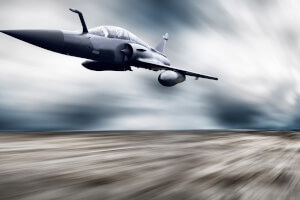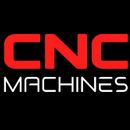Cutting-Edge Manufacturing Technology and Advanced Support Resources in the Aerospace Industry

Cutting-Edge Manufacturing Technology and Advanced Support Resources in the Aerospace Industry
The aerospace industry demands the highest standards of precision, efficiency, and innovation. With the rapid advancements in manufacturing technology and the availability of advanced support resources, aerospace manufacturers are better equipped than ever to meet these demands. From machining structural parts to producing engine components, landing gear, and systems controls, manufacturers have access to a variety of machine configurations, acute market knowledge, and extensive applications expertise to optimize operations and achieve unparalleled productivity.
Innovative Manufacturing Technologies
1. 5-Axis CNC Machining
5-axis CNC machines are at the forefront of aerospace manufacturing technology. These machines enable the precise machining of complex geometries that are common in aerospace components.
- Advantages: Enhanced accuracy, reduced setup times, and the ability to machine intricate parts in a single setup.
- Applications: Ideal for producing turbine blades, aircraft structural components, and complex engine parts from materials like titanium, heat-resistant superalloys, and aluminum.
2. Additive Manufacturing (3D Printing)
Additive manufacturing is revolutionizing the way aerospace components are designed and produced. This technology allows for the creation of parts with complex geometries that would be impossible or cost-prohibitive to manufacture using traditional methods.
- Advantages: Reduced material waste, shorter lead times, and the ability to produce lightweight structures.
- Applications: Suitable for rapid prototyping, production of lightweight structural components, and custom tooling.
3. Advanced Materials Processing
The use of advanced materials like titanium, heat-resistant superalloys, and composite materials is critical in the aerospace industry. Advanced processing techniques ensure these materials are machined efficiently and with high precision.
- Advantages: Enhanced material properties, improved component performance, and longer service life.
- Applications: Machining of engine components, landing gear, and structural parts that require high strength and resistance to extreme conditions.
Advanced Support Resources
1. Extensive Applications Expertise
Manufacturers benefit from the deep applications expertise provided by industry specialists. This expertise helps in selecting the right machine configurations, optimizing machining processes, and implementing best practices for aerospace manufacturing.
- Support Areas: Process optimization, tooling selection, machine setup, and programming support.
- Benefits: Improved part quality, increased efficiency, and reduced production costs.
2. Acute Market Knowledge
Staying ahead in the aerospace industry requires a thorough understanding of market trends, customer needs, and technological advancements. Manufacturers leverage acute market knowledge to make informed decisions and stay competitive.
- Insights: Market demands, emerging technologies, and regulatory requirements.
- Benefits: Strategic planning, innovation, and alignment with industry standards.
3. Customized Machine Configurations
Aerospace manufacturers can choose from a wide range of machine configurations tailored to their specific needs. Whether it's a 5-axis CNC machine for complex part geometries or an additive manufacturing system for rapid prototyping, customized configurations ensure optimal performance.
- Options: Multi-axis CNC machines, hybrid manufacturing systems, and specialized material processing equipment.
- Benefits: Flexibility, scalability, and the ability to meet diverse manufacturing requirements.
Optimizing Manufacturing Operations
To produce the highest quality parts and achieve increased productivity, aerospace manufacturers must optimize their operations. This involves selecting the right technologies, utilizing advanced support resources, and continuously improving processes.
1. Process Optimization
By implementing advanced manufacturing technologies and leveraging expert support, manufacturers can streamline their processes, reduce cycle times, and enhance part quality.
- Techniques: Lean manufacturing, Six Sigma, and continuous improvement initiatives.
- Outcomes: Higher efficiency, reduced waste, and improved profitability.
2. Quality Assurance
Ensuring the highest standards of quality is paramount in the aerospace industry. Advanced inspection and quality assurance technologies help manufacturers meet stringent regulatory requirements and deliver reliable parts.
- Technologies: Coordinate measuring machines (CMM), non-destructive testing (NDT), and in-process monitoring systems.
- Benefits: Enhanced part accuracy, compliance with industry standards, and increased customer satisfaction.
3. Training and Workforce Development
A skilled workforce is essential for leveraging advanced manufacturing technologies. Ongoing training and development programs ensure that operators and engineers are proficient in the latest techniques and best practices.
- Programs: Technical training, certification courses, and on-the-job training.
- Benefits: Improved productivity, reduced downtime, and a culture of continuous improvement.
The aerospace industry is at the cutting edge of manufacturing technology, driven by the need for precision, efficiency, and innovation. By embracing advanced manufacturing technologies and leveraging extensive support resources, aerospace manufacturers can optimize their operations, produce the highest quality parts, and achieve increased productivity. Whether machining structural parts, engine components, landing gear, or systems controls from advanced materials, the right combination of technology and expertise ensures success in this demanding industry.


